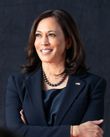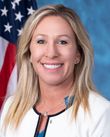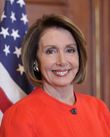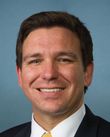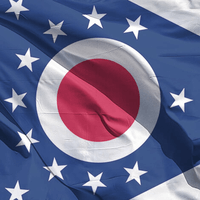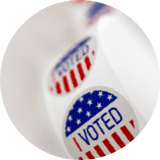
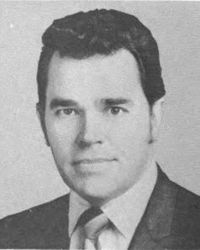
Douglas Applegate DEMDemocrat
American politician (1928–2021)

Douglas Earl Applegate (March 27, 1928 – August 7, 2021) was an American politician who served in the United States House of Representatives from Ohio's 18th congressional district from 1977 to 1995, as a member of the Democratic Party. Prior to his tenure in the United States House of Representatives he served in the Ohio House of Representatives from 1961 to 1968, and in the Ohio Senate from 1969 to 1974. Applegate was born in Steubenville, Ohio, the son of mayor and state representative Earl Applegate, and was educated at Steubenville High School. He was elected to the state house in the 1960 election alongside Michael Blischak in a multi-member district and later became the sole representative from the district after defeating Blischak in 1962. He served in the state house until his election to the state senate in the 1968 election. During his tenure in the state senate he defeated incumbent Republican senators John Longsworth and Kenneth F. Berry. Applegate had planned on running to succeed Wayne Hays in the U.S. House of Representatives in the 1978 election, but was selected to replace Hays as the Democratic nominee in the 1976 election after Hays resignation. He served until his retirement in the 1994 election during which he served on the Transportation, Public Works, and Veterans' Affairs committees. His ideological belief and ratings were mixed and ranged from liberal to conservative with the Americans for Democratic Action giving him scores between 5% and 80% while the American Conservative Union gave him scores ranging from 12.50% to 64.86%. Applegate ran for the Democratic presidential nomination in the 1988 primary as a favorite son.
We don't have much info on Douglas Applegate
If this is your profile, please reach out to us - we'll help get your profile filled out to start making a big impression on Voterly.
Below lists the position this politician has taken on a political issue. The star rating represents the politician's prioritization and action on the issue based on data collected by relevant interest groups. Select an issue to view a more in-depth explanation of each rating.

Voterly uses special interest group ratings to determine a politician's stance on a political or social issue. Special interest groups release ratings of politicians to convey whether that politician is in favor of their cause. For example, a politician who actively supports gun rights will receive a high rating from a pro-gun interest group. That same politician would be rated low by a gun control interest group. This collection of ratings informs where we place a politician on the spectrum of the issue.
Special Interest Group Ratings
Disclaimer: A special interest group's positions on issues are gathered from various reputable sources including the organization's website, social media accounts, press releases, and other public communications. Special interest group politician ratings are provided by VoteSmart.org. Positions and ratings are subject to change and we may experience delays, interruptions, or errors, as a result. If you believe this information is inaccurate, please submit a problem report. Submit Report.









